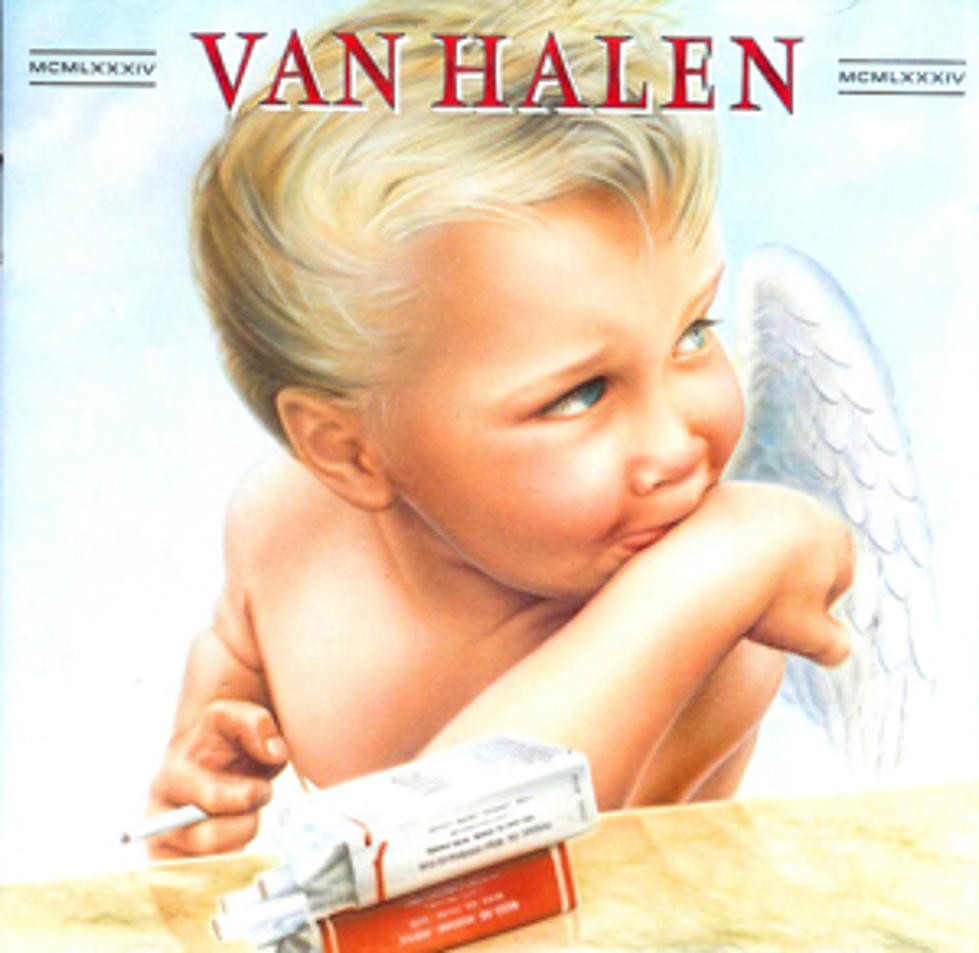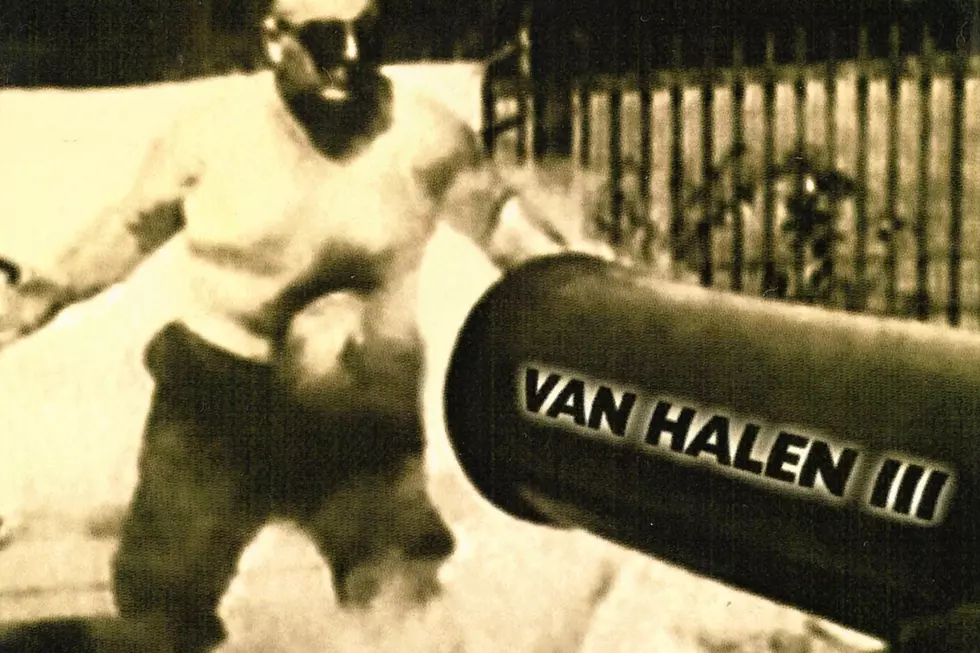
A Look Back at Van Halen’s ‘1984’
In anticipation of the expected 2012 release of the first Van Halen studio album to feature David Lee Roth on vocals in almost 30 years (and in honor of this being our 1,984th published story), we're going to take a look back at the original lineup's last record together, '1984.'
It's really hard to find bad things to say about any of the Roth-era Van Halen albums, and the impact of their 1978 debut on the vocabulary of rock music cannot be underestimated. However, '1984' is clearly their most accomplished, diverse and song-oriented collection.
The album featured several massive hit songs, including the driving rocker 'Panama,' the horny drumtastic schoolboy anthem 'Hot for Teacher' and most notably, the keyboard-heavy first single 'Jump.' That song, along with its darker-minded partner in electronica 'I'll Wait,' caused some serious debate within the Van Halen camp during the creation of '1984.'
Apparently the group's musical mastermind, guitarist Eddie Van Halen, was eager to expand the band's sound by including keyboards -- in fact, he claims to have written 'Jump' years before. Although the instrument was featured in small doses as far back as 1980's 'Women and Children First,' singer Roth and others in the organization reportedly wanted him to focus on the fretboard magic that helped make the group so popular.
Frustrated by these limitations, and furious at having to record a cover of the Motown classic 'Dancing in the Streets' on the band's last album, 1982's 'Diver Down,' Eddie set about having his own studio -- named '5150' -- built on his home property while the band was on tour for that album, in order to better control the creative process.
As cohesive as the resulting record sounds -- and even the non-singles, from the retro-minded 'Top Jimmy' to the strutting 'Drop Dead Legs,' are uniformly fantastic and inventive, trading just enough of the band's early riff-centric approach in favor of ever-more sophisticated songwriting -- it's creation wound up unraveling the band.
According to an excellent, in-depth article on the creation of '1984' from Classic Rock magazine's April 2011 issue, Van Halen and engineer Donn Landee took over the sessions, trading the band's usual brief, focused visits to an outside studio for marathon late-night sessions at their new hideout.
Sometimes, Roth and long-time producer Ted Templeman were reportedly forced to wait outside of the studio "for four or five days in a row, waiting for Ed to pick up the phone in his bedroom, knowing he was in there but wouldn't pick up." Eddie himself states "Ted sure didn't like working at 5150, he thought I'd just throw him out if I didn't want to hear what he had to say."
Well, then score one strike against democracy, because whatever difficulties were endured while this nearly flawless album was being made were, if we can be extremely selfish, totally worth it.
In fact, in a way, it's a shame the album's final minute wasn't allowed to stand as the end of the original Van Halen's musical legacy. Just as the song 'House of Pain' wraps up to a logical conclusion, Eddie instead starts things up in a different direction with a brand new, typically groovy-as-heck riff as Roth "Ah ahhh / Ah ahhh"'s his approval.
Drummer Alex Van Halen and bassist Michael Anthony quickly take over the rhythm, allowing their guitarist to run wild with another tantalizing fade-out solo that keeps you turning the volume up to hear every last second. (The best example of this torture remains 'One Foot Out the Door' from 1981's 'Fair Warning.')
This ending, which seems to cut off just as things are once again really cooking, allows you to imagine an alternate universe where the original Van Halen never stopped playing together. It's amazing how much impact this version of the group had on rock history in the space of just 6 years, 6 albums, 60 songs and slightly over three hours of recorded music. (We did a little math!)
It would be so awesome to see Van Halen pick up right where they left off at the end of '1984.' Of course, several things throw this possibility into doubt, most notably the two 1996 'Best Of' reunion tracks featuring Roth, which found him forced to cram his way into songs much more suited for the vocal style of his replacement, Sammy Hagar.
There's also the fact that original bassist (and key backup singer) Anthony isn't part of the group, and the reality that 28 years is an eternity in any type of career, especially rock music. Still, the band's 2007-8 reunion tour found them performing all their classic songs with unbelievable energy and passion, making it seem at least possible they could reconnect with their original magic. Here's hoping!
More From Ultimate Classic Rock









